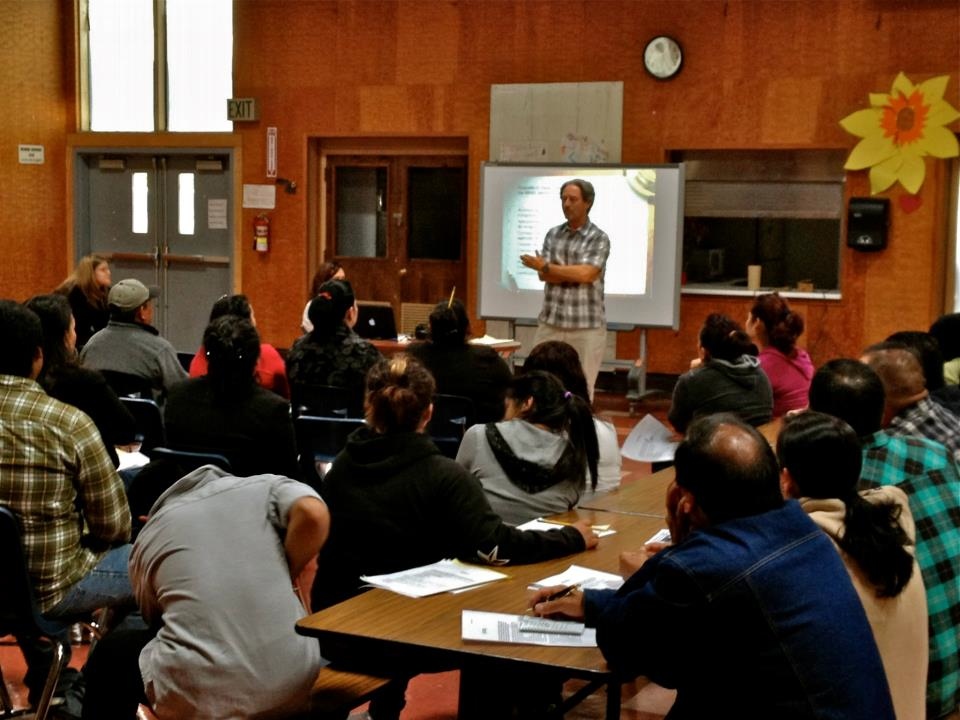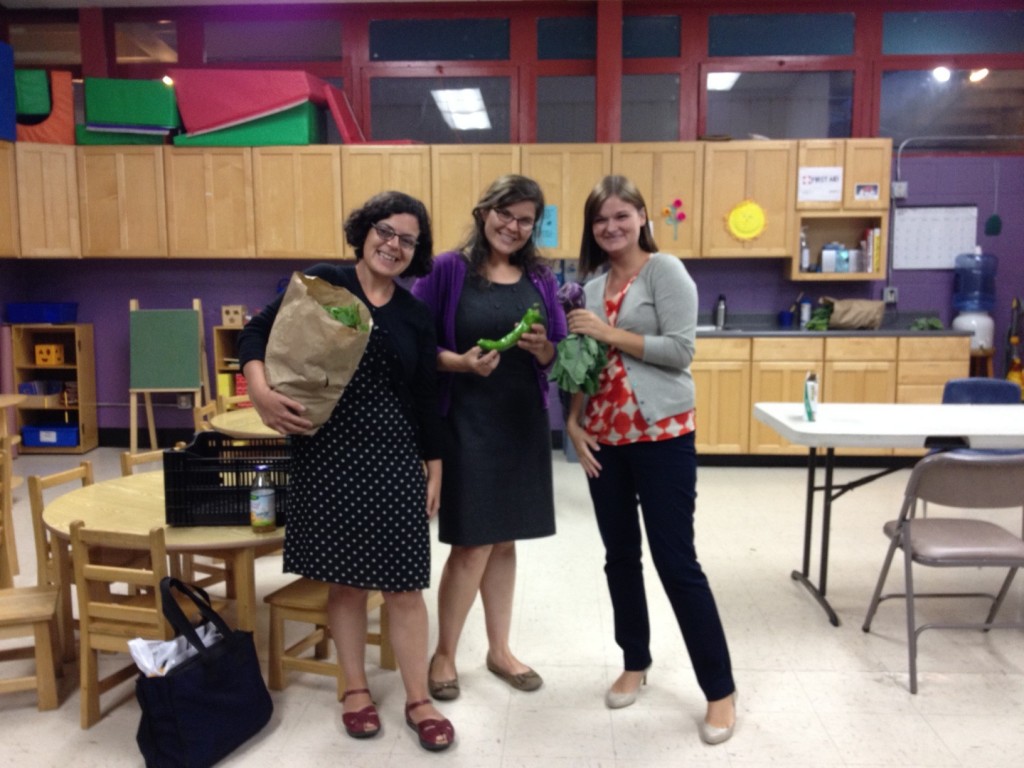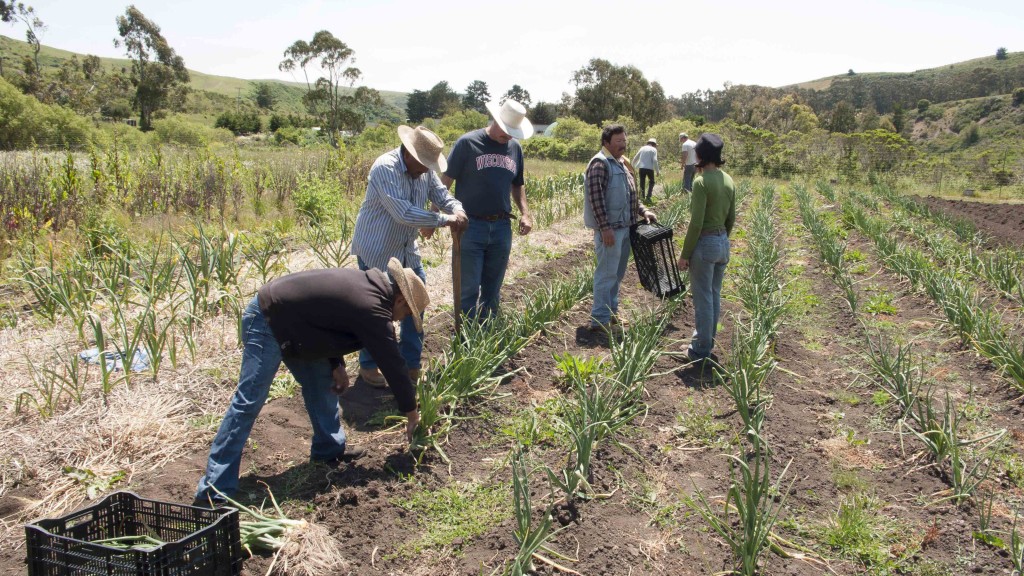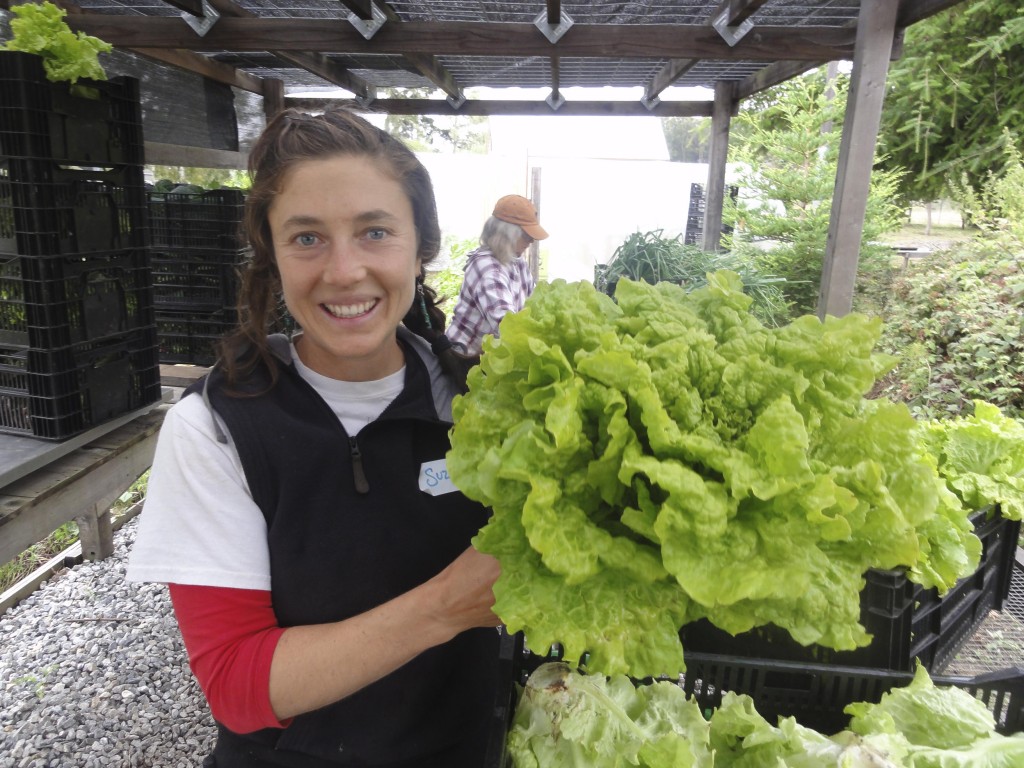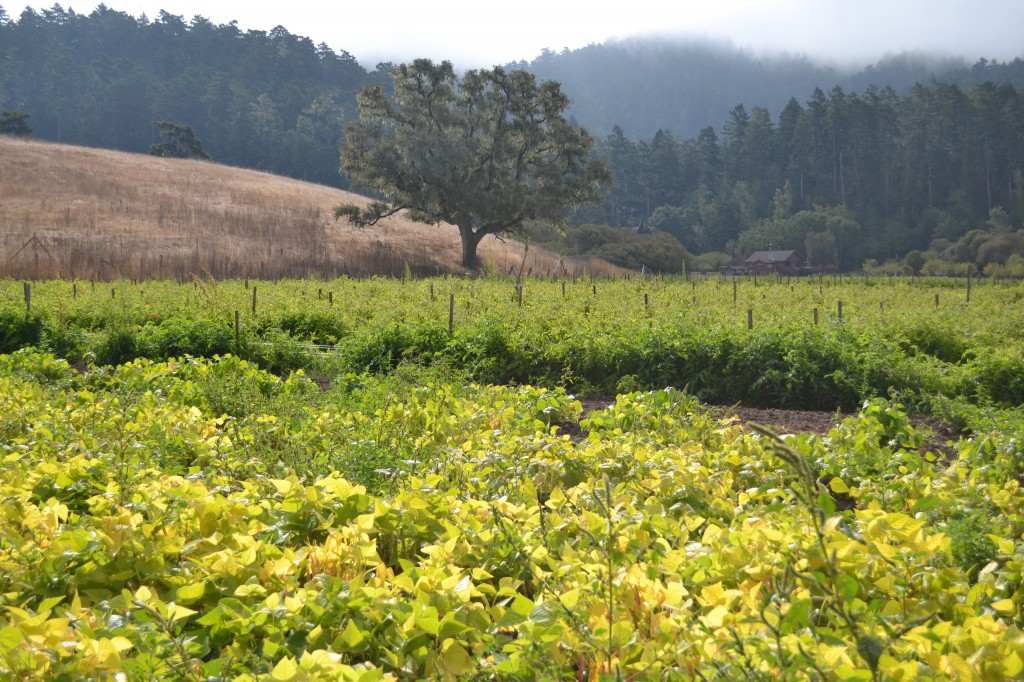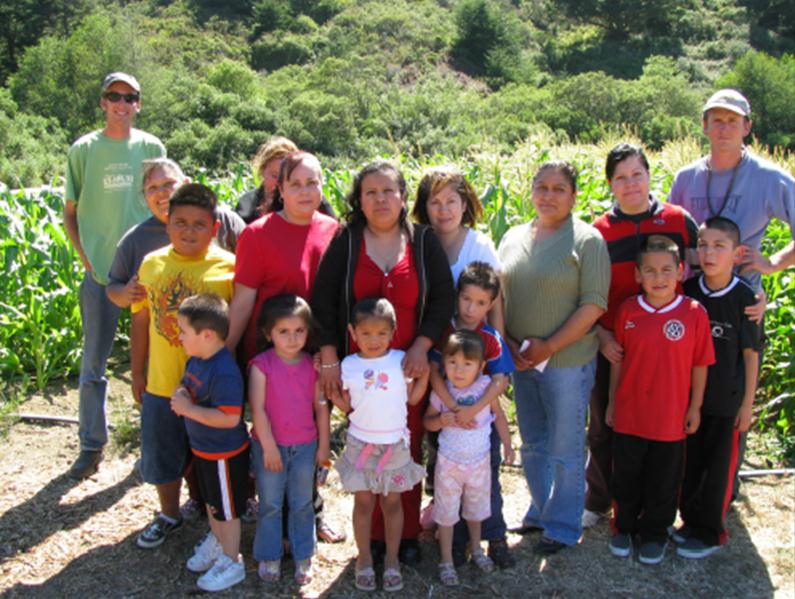Throw out that old textbook: Puente has adopted a new approach to teaching ESL to adult students, on the advice of one of the country’s most prominent experts on English-Spanish bilingualism.
Stanford Prof. Guadalupe Valdés has spent years documenting – and trying to solve – a problem most ESL educators try not to acknowledge: that -grammar-based ESL doesn’t teach students as much as it is hoped.
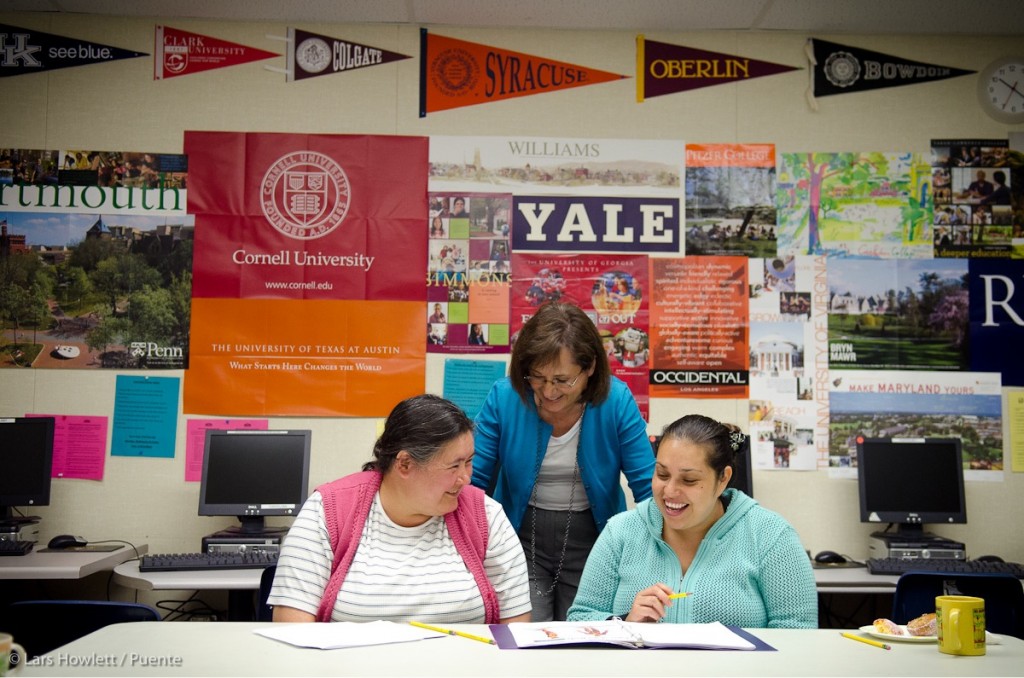
Guadalupe Valdes and ESL students
“The TESOL (Teaching English to Speakers of Other Languages) profession has generally agreed that it’s only native speakers who can teach English, and English can only be taught in English,” says Prof. Valdés. “The teacher doesn’t need to use the students’ language because they’re trying to teach them English. Prof. Valdés uses TESOL scholar Robert Phillipson’s catchy name for that kind of approach – ‘linguistic imperialism.’
In grammar-based approaches, students learn words and grammar, often without a clear understanding of what they’re repeating. And because the teacher doesn’t speak Spanish, he or she has no idea how much students are actually progressing.
Puente Academic Director, Suzanne Abel, and Executive Director, Kerry Lobel, invited Prof. Valdés to re-make Puente’s ESL curriculum this summer, using her techniques with a pilot class of adult learners. Puente offers the only available ESL classes to adults on the South Coast. Those who enroll are often parents of children who grew up in Pescadero and speak English as well as Spanish. The parents are locked away in linguistic isolation, even as their jobs often require them to know some English. They also can’t generally help their children with homework assignments. “People get so hung up in the correct way to speak English, that they never speak,” says Lobel. “That really handicaps them in their ability to communicate with teachers.”
Prof. Valdés used the pilot class to work with Learning Center Associate, Kassi Talbot, to develop a set of instructional videos and a handbook for Puente’s use. Going forward, Puente will employ four ESL teachers who speak both Spanish AND English.
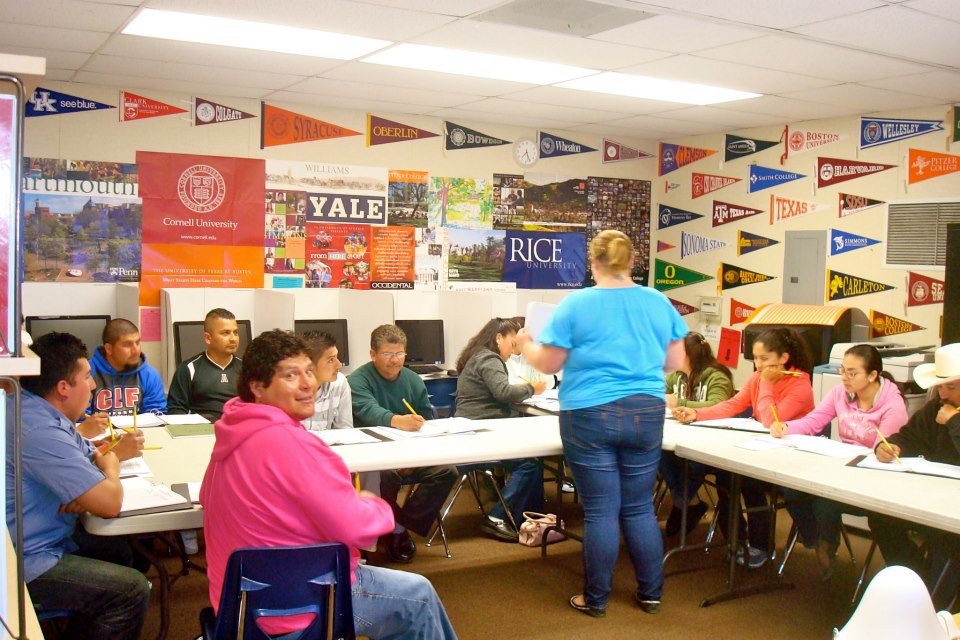
Kassi Talbot leads a class
“People who have never taken ESL were able to speak more quickly and confidently this summer,” notes Lobel. “It’s exciting to witness how much more engaging it was for the students.”
Rather than going sentence by sentence with a focus on grammar (“The cat sat on a fence,”) Puente ESL students in fall classes will learn useful phrases tailored to the context of their lives (“I’d like to order the ham sandwich.)Students will spend a lot of time developing listening comprehension meta-cognitive strategies by listening to how English is spoken and watching specially recorded videos that reflect real-life situations and can be played back to develop their comprehension.
“We want them to be able to produce personal information, shop, return things, even complain, and understand what is said around them” says Prof. Valdés. And someday, perhaps even be able to help their children with their homework.

